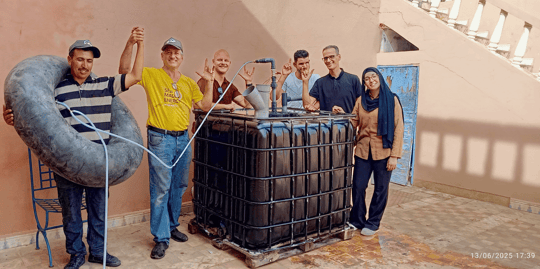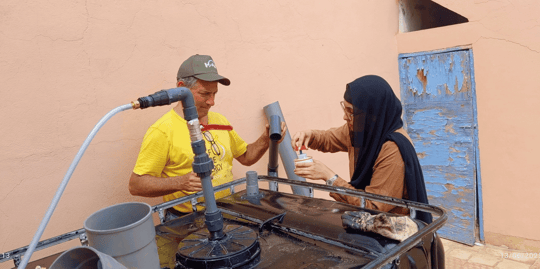The Role of Education and Exploitation in Waste Management Efforts

I cannot honestly claim to know a great deal about conservation efforts, although I find myself increasingly concerned about the state of our planet and its climate. In so many ways, climate change feels like an amorphous yet overgrowing problem, something that feels insurmountable to me as I neither grasp the scientific knowledge to recognize every problem or the creative mind needed to find solutions. As far as I knew, climate change and the issues categorized within (such as waste management) seemed impassable to me, as I was neither a scientist capable of discovering the necessary solutions, nor did my contributions seem significant enough to make a meaningful difference.
Yet, our presentation on waste management yesterday shifted my perspective. The first thing I registered feeling was a potent mixture of shock and disbelief. When Professor Culhane began showing us his work with various biogas and composting machines, I was impressed. Almost every day, we hear stories of the growing amount of trash in the world; growing heaps of rubbish in the streets, animals strangled by plastic waste, and entire islands of trash. Not only did I not know that there was a real, tangible solution to this problem, but I also never could have imagined that it could be so simple.
Professor Culhane explained to us the importance of separating organic and inorganic waste. If we grind up our food, through a garbage disposal or composting machine, we can turn that waste into new soil. He explained the concept of a metabolic rift, essentially citing the imbalance in the resources we extract from the Earth without replenishment. By turning our food waste into soil, we are one step closer to closing this so-called metabolic rift, and subsequently allow us to produce more in the future. Furthermore, clean, inorganic materials (such as the plastic in water bottles or various food containers) can also be recycled into construction and artistic materials.

Media constantly harp on the enormity of the problem, and before today, I didn’t even believe we had discovered a solution yet. This, in its way, is its own exploitation. I felt taken advantage of; my lack of knowledge on waste management meant I was unknowingly contributing to the issue. The undertone of the presentation, in my opinion, was not only about a solution to a practice exacerbating climate change, but also a circular economy of exploitation. Through ignorance, climate change continues to be perpetuated. In a way, we had achieved a circular economy, just not in the intended way; those in power, who profit from continuing to overutilize Earth’s resources, influence the general population to continue buying into this system through the manipulation of choice. We, as consumers, believe there is no other way to handle our waste, no way to contribute to creating a better Earth. Thus, we continue to extract resources without balancing what we take with what we are giving back.
Likewise, mirroring other development issues in Morocco, there is a problem of accessibility, both economically and physically. Communities often cannot afford to purchase a garbage disposal capable of turning biowaste into soil, and moreover, lack knowledge of the benefits of doing so. Bridging this gap is, in its own way, a manner of closing a different type of “metabolic rift.” By bringing knowledge and information to these communities, we can help them manage their waste more effectively, breaking the cycle of extraction without contribution.
The biggest takeaway I had from the presentation was the significance of education. Education appears to be the key to closing numerous gaps, not just the metabolic rift, but also gender gaps, class divides, and opportunity deficits. Through its dedication to a participatory approach to education, HAF is committed to improving climate instruction and ensuring a brighter, more sustainable future.